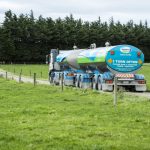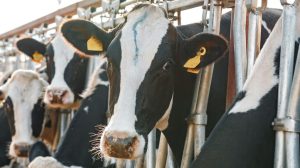
“Congratulations to EU Commissioner Christophe Hansen and his teams for having carried out the mission to lay out the strategic lines for the future of our European agri-food sector. It is time to build a long-term strategy for our sector, that will not only translate into the next CAP and its financial basis, but must have a significant impact on all relevant policy fields. The agri-food sector has been acknowledged as a strategic asset of our Union and the “Vision for agriculture and food” is a perfect starting point for the strengthening of our cooperation to ensure that dairy has a promising future in Europe”, stated EDA secretary general Alexander Anton.
That’s why the European Dairy Association (EDA) welcomes the European Commission’s long-term vision for the agri-food sector, particularly its emphasis on ensuring food security, promoting sustainability, enhancing economic resilience, strengthening EU global market leadership and assuring a vibrant agri-food sector, especially in rural Europe.
The recognition of food sovereignty as “non-negotiable” aligns with EDA’s commitment to safeguarding the stability of the EU dairy sector, a key driver of industrial and economic activity across Europe, especially in rural Europe.
The Common Agricultural Policy (CAP) plays an essential role in supporting the dairy industry, maintaining high-quality food production, and fostering competitiveness. A strong and well-functioning CAP is crucial for ensuring the EU’s continued global leadership in dairy at milk production and processing level.
EDA strongly supports the Commission’s emphasis on sustainable production practices and the promotion of innovation in dairy. Incentivizing eco-friendly production while leveraging new technologies and business models will help secure the sector’s long-term future. The clear commitment to continue the EU School Food Scheme is particularly welcome, as it ensures that younger generations benefit from nutritious dairy products, reinforcing the sector’s role in public health and food security. Furthermore, the reduction of administrative burdens both at national and European level is a crucial step toward enabling dairy processors to focus on innovation and efficiency.
A well-functioning single market remains essential for the dairy sector’s competitiveness, ensuring that businesses can operate without the burdens of regulatory fragmentation.
The Single Market is a “formidable asset which we need to continuously preserve, improve and reinvent”, to quote EU Commission President Ursula von der Leyen. As stated in the “Vision for Agriculture and Food”, any origin labelling scheme must, of course, avoid barriers within the Single Market. Any extension must therefore remain voluntary, also in order to be aligned with sectorial specificities.
Investment in infrastructure and digitalization will further enhance the industry’s ability to remain efficient and competitive, also in global markets. Equally important is the need for a stable regulatory framework that provides businesses, at milk producing and at milk processing level, with predictability, allowing for long-term planning and investment.
While the “Vision for agriculture and food” reflects many of EDA’s priorities, certain critical aspects require further attention and finetuning.
Economic sustainability and industrial competitiveness must be at the heart of CAP reforms. European dairy processors face increasing cost pressures, and it is vital that the policy framework supports predictable revenue streams and targeted investment incentives to ensure the sector’s long-term stability. Trade policy alignment is also crucial—while EDA supports the expansion of trade opportunities, it is important that CAP objectives support European dairy businesses. The removal of trade barriers must be balanced with adequate safeguards for EU dairy production and robust enforcement against the misuse of protected dairy terms.
EDA also highlights the need for a more practical approach to economic incentives. The current vision risks imposing financial and regulatory burdens on dairy processors, making compliance with sustainability goals more difficult. A data-driven, science-based and sector-focused approach is necessary in order to maintain business viability and industrial growth. In that context, the proposed review of the Common Market Organisation (CMO) regulation raises concerns, as it limits the freedom to negotiate contracts, increase administrative complexity, and contradict the principle of subsidiarity. Any revisions to the CMO must ensure that dairy businesses can operate effectively to the benefit of all actors in the dairy chain.
Greater responsibility for Member States in implementing agricultural policies should be carefully considered, as some proposals risk increasing top-down bureaucracy, which could reduce efficiency at the industry level. The Commission’s focus on competitiveness is welcome, but policy decisions must be accompanied by thorough impact assessments and constructive consultations with the relevant stakeholders to avoid unintended economic consequences for dairy businesses.
As also indicated by EU Commissioner Christophe Hansen during the presentation of the “Vision for Agriculture and Food”, there is a need to ensure that the Nitrate Directive allows for the use of RENURE (recovered nitrogen from manure), providing an environmentally sound and practical solution for nutrient management, that is fully aligned with our strategic autonomy ambitions.
The continued support of CAP for promotion schemes and high-level trade missions will be crucial in strengthening the external dimension of the CAP and the global position of European dairy. Maintaining a strong international presence is essential for securing new market opportunities, and EDA encourages further initiatives in this area.
As discussions on the future of CAP continue, it is essential to take a sustainability approach that encompasses environmental, social and economic sustainability objectives.
The European dairy industry fully stands behind the EU’s ambition for a resilient agri-food sector: still, greater emphasis is needed on ensuring industry competitiveness, economic resilience, fair trade conditions, and regulatory predictability. The European dairy sector remains a pillar of EU agriculture and food industry. EDA looks forward to engaging constructively with the European Commission and the European Parliament to shape policies that support a strong, competitive, and sustainable dairy industry.
You can now read the most important #news on #eDairyNews #Whatsapp channels!!!
🇺🇸 eDairy News INGLÊS: https://whatsapp.com/channel/0029VaKsjzGDTkJyIN6hcP1K





















